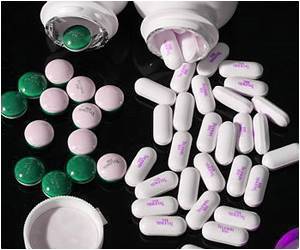PPIs were the third-most taken type of drug in the U.S and are believed to account for $13 billion in annual global sales.

TOP INSIGHT
Chronic exposure to proton pump inhibitors (PPIs) accelerates biological aging in human endothelial cells which line the inside of blood vessels, increasing the risk of cardiovascular disease, vascular dementia and renal failure.
PPIs like esomeprazole (Nexium) are widely used for the treatment of GERD. These medications are sold over-the-counter in the United States so medical supervision is not required. While these drugs are effective when taken as prescribed, they were not approved for long-term use and evidence suggests that up to 70 percent of PPI use may be inappropriate.
Cooke, the paper''s senior author, and team showed that chronic exposure to PPIs accelerated biological aging in human endothelial cells which line the inside of blood vessels. When healthy, human endothelial cells create a Teflon-like coating that prevents blood from sticking. When older and diseased, the endothelium becomes more like Velcro, with blood elements sticking to the vessel to form blockages.
"When we exposed human endothelial cells over a period of time to these PPIs, we observed accelerated aging of the cells," Cooke said. "The PPIs also reduce acidity in lysosomes of the endothelial cell. The lysosomes are like cellular garbage disposals and need acid to work properly. We observed cellular garbage accumulating in the endothelial cells, which sped up the aging process."
Cooke suspects that this may be the unifying mechanism that explains the increased risk of heart attack, renal failure and dementia observed in long-term PPI users.
Cooke's earlier work identified at a molecular level that PPIs might cause long-term cardiovascular disease and increase a patient''s heart attack risk. That work led to a collaborative study with Stanford University colleagues (PLOS ONE, June 2015) to show that in two large populations of patients, adults who used PPIs were between 16 to 21 percent more likely to experience a heart attack than people who didn''t use the commonly prescribed antacid drugs.
The FDA estimates about 1 in 14 Americans have used a PPI. In 2009, PPIs were the third-most taken type of drug in the U.S., and are believed to account for $13 billion in annual global sales.
In addition to GERD and heartburn, PPIs treat a wide range of disorders, including infection by the ulcer-causing bacterium Helicobacter pylori, Zollinger-Ellison syndrome, and Barrett''s esophagus. PPIs come in a variety of forms, always ending with the suffix "-prazole," and other brand examples include Prilosec and PrevAcid.
Source-Newswise
 MEDINDIA
MEDINDIA




 Email
Email









